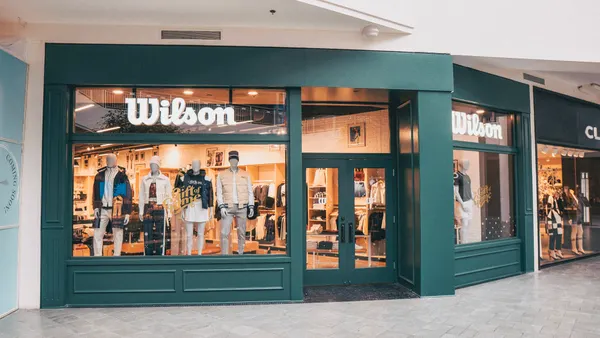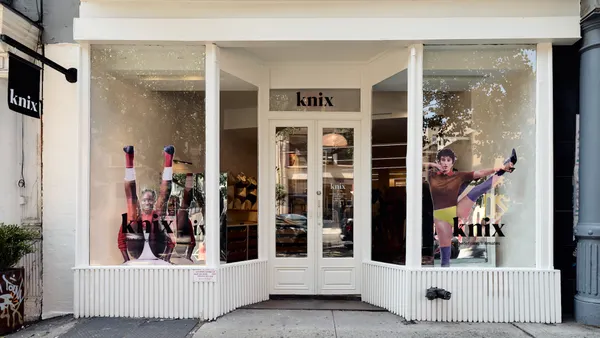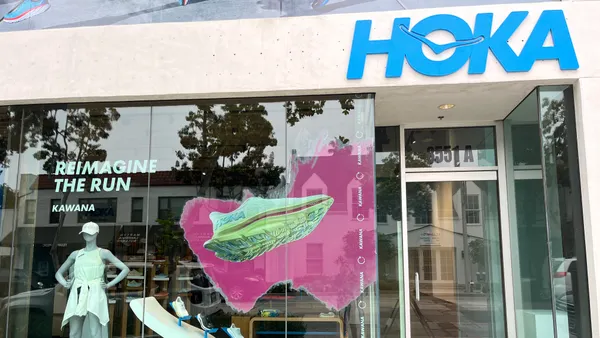Dive Brief:
-
Since Friday, Best Buy customers have been able to order Best Buy’s Deal of the Day products on an Amazon Alexa device, by saying, "Alexa, talk to Best Buy." Shoppers can buy from a tailored list of recommendations, which are partially based on their needs and taken from Best Buy’s assortment of laptops and TVs, according to a company blog post.
-
The electronics retailer last month also partnered with Google Home in Canada, allowing users to hear sales, learn about products and find a nearby store via the Google Assistant, the company also said.
-
The move in the U.S. to partner with Amazon’s Alexa is in contrast to Walmart, Target and The Home Depot, which have allied with Google for their voice-assisted shopping.
Dive Insight:
Best Buy is one of many major retailers turning to voice to boost sales and marketing, but an Alexa partnership is curious given Amazon's incursion into electronics sales. Amazon accounted for a whopping 90% of the $5.6 billion growth in consumer electronics sales posted nationwide in 2015, according to a note from Deutsche Bank analysts last year. Five years ago, Amazon had 6.2% share and ranked No. 4 on the list of top 100 U.S. electronics retailers; last year it landed at number two with 17% share, jumping ahead of Walmart.
Best Buy itself is also swiftly losing market share. Consumer electronics sales grew 28% at Amazon in 2015, compared to same-store sales increases of 4.3% at Apple and 3.8% at Best Buy. Its choice of Alexa may reflect Amazon's superiority with the technology: Amazon's Alexa so far is edging out Google when it comes to market share in the voice assistant space. Amazon devices like the Echo and Dot speakers, along with apps in mobile devices, could provide some $10 billion in revenue by 2020 and be a "mega-hit," according to a note published this spring by investment bank RBC Capital Markets, though Google has been working hard to add features that Alexa doesn't have and enjoys a wide-open ecosystem.
The fight is on. Google is beginning to enjoy significant partnerships with various retailers, stoking competition. "You’re definitely going to be seeing [some] jockeying for position. What you’re seeing right now [is] the big players to some extent opening up their systems, and that third-party will simply lead to more adoption," Maya Mikhailov, co-founder and CMO of GPShopper told Retail Dive. "When you have a closed ecosystem — that not everyone can play on — that inevitably leads to less adoption unless that party already has tremendous momentum. I think there’s a reason you see so much excitement around the connected home. For retailers it has to be a very interesting place to play in because as a retailer, you have to be everywhere."
The battle is also fueled by the holiday season, according to Luke Starbuck, VP of Marketing at customer care automation platform Linc, who notes that the perception of voice assistance as futuristic has become a reality. A huge majority (87%) of retailers expect to be using AI for customer service and engagement within the next 24 months, while 41% are using it or experimenting with it already, according to Linc's research.
"This increasing popularity, coupled with retailers’ desire to partner with voice platforms, will continue to snowball until voice platforms are the norm and an essential asset for any brand,” Starbuck told Retail Dive in an email. "Especially following the announcement of the Walmart’s partnership with Google Home just a few weeks ago, [Home Depot's] latest move indicates that there will be an ongoing battle for market control between Amazon Alexa and Google Home, especially as we head into the 2017 holiday sales season."
A major catalyst for the growing emphasis on voice assistants is recognition by brands of the importance of a customer-centric purchase and service journey, and of building stronger relationships that lead to future purchases, according to Starbuck. "By giving customers more ways to order and track shipments (via voice, chatbots, etc.) shoppers will be more willing to buy again following a fluid and streamlined buying process," he said.
This story is part of our ongoing coverage of the 2017 holiday shopping season. You can browse our holiday page and sign up for our holiday newsletter for more stories.













